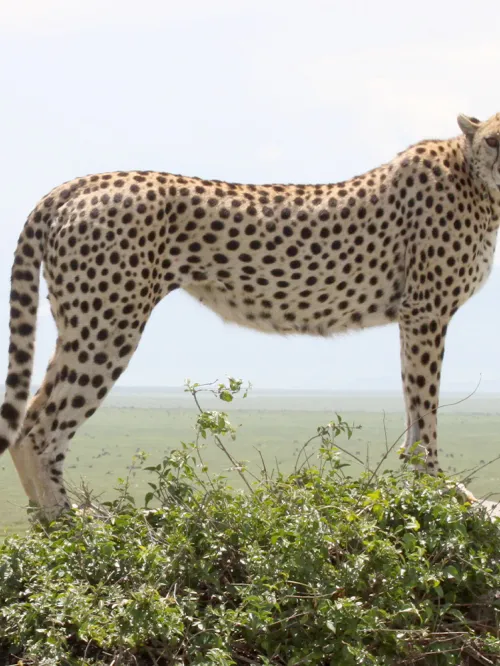Our work in Africa
Humane World for Animals tackles the root causes of animal cruelty and suffering to create permanent change. We make change at scale, advocating for policy change at all levels of government and working with companies so that they can be kinder to animals their businesses impact. We work in partnership with communities, bringing diverse expertise to the most complex issues, and doing it all with a compassionate and welcoming approach.
Our impact
We envision a world without animal cruelty, where humans and animals coexist peacefully. In Africa, we work to promote non-lethal solutions to human-wildlife conflicts, improve the lives of animals raised for food, end the illegal wildlife and captive big cat trade, advocate for a more plant-forward food system, increase access to spay/neuter services and primary veterinary care for companion animals, ending cosmetics animal testing and helping animals in disaster situations.
outside Kruger National Park have received an immunocontraceptive vaccine
have a permanent home at our sanctuary in Liberia
in South Africa have been sterilized through our Healthy Pets, Healthier Communities initiative
Latest News
About Hares
Hares live above ground, mainly in farmland, and shelter in shallow depressions, known as “forms”, made in grassland or soil. Lying low and motionless in the form, ears flat against their bodies, hares are difficult to spot, and they rely on this
Salmonella thrives in cage housing
“Salmonella Thrives in Cage Housing”—This headline was featured in World Poultry in 2009. In 2010, an outbreak of salmonella that sickened hundreds of people caused the recall of hundreds of millions of eggs in the United States. All 15 studies published comparing
No battery cages: Our campaign
Imagine living the rest of your life in an elevator with six other people—being prevented from even the most basic activities! This is the kind of existence that a battery hen endures. Chickens raised for egg production are referred to as laying
Fast facts on battery cages in Canada
Did you know? There are approximately 26 million laying hens in Canada. Most of them are kept confined in cramped, barren cages. Battery cages were designed in the 1940s to maximize production and lower animal care costs as a response to the
Shark Finning in Latin America
Shark finning—cutting off a shark’s fins and throwing its body overboard to die—occurs because the value of fins outweighs that of shark meat. In 2005, Humane Society International began working with concerned organizations, local advocates and governments to combat shark finning. Today
Wild Animals in British Circuses
HSI UK does not believe that a licensing and inspection system can adequately protect the welfare of wild animals in British circuses, for the following reasons: A licensing system will not prevent new animals or new species of animals from being introduced
The British Circus Debate: A Timeline
In March 2006 the then Department for Environment, Food and Rural Affairs (DEFRA) Minister responsible for Animal Welfare, Ben Bradshaw, announced his intention to introduce Regulations under the Animal Welfare Act 2006 to ban the use of certain non-domesticated species in travelling
Shark Finning in Europe: A Timeline for Change
2006: The European Parliament adopted a resolution calling on the European Commission to strengthen the EU shark finning legislation [ 1]. The Parliament noted that the information supplied by Member States on their fishing fleets’ activities was very poor, enforcement of the
Street Dogs in Bhutan
In September 2009, the Ministry of Agriculture and Forests, Department of Livestock of the Royal Government of Bhutan (RGOB) and Humane Society International (HSI) formed a unique partnership. With the signing of a Memorandum of Understanding, the two entities embarked on a
Help us end animal cruelty
Start saving lives today by making a one-time gift—or protect animals worldwide all year long with a monthly contribution.
